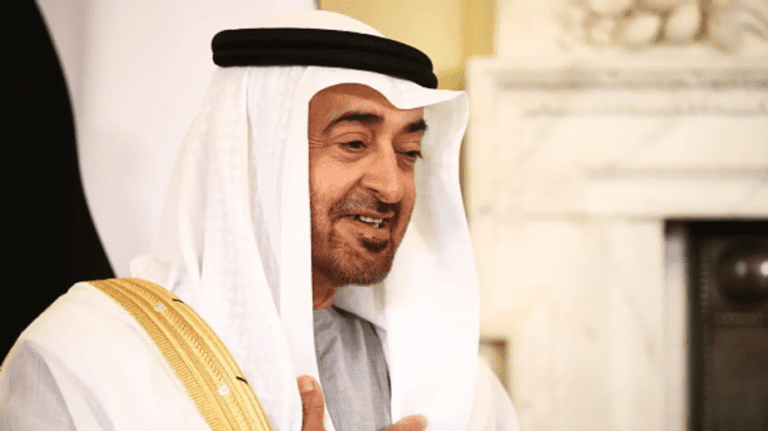Sheikh Mohammed bin Zayed Al Nahyan, President of the United Arab Emirates (UAE), is set to meet with U.S. President Joe Biden and Vice President Kamala Harris to advance discussions on critical regional issues, including the Gaza conflict. However, the primary focus of the meeting will be on economic expansion, particularly through innovation and artificial intelligence (AI).
The Emirati President’s first official visit to Washington, D.C., aims to usher in a new “geo-economic phase” in UAE-U.S. relations, according to top officials. Anwar Gargash, the UAE leader’s senior diplomatic advisor, highlighted the significance of this visit, stating, “The purpose of the visit is really from an Emirati perspective, it’s investing in our future … through an economic lens.”
While regional security challenges, such as the ongoing war in Gaza, will be part of the conversation, economic realignment remains the top priority. Gargash emphasized the importance of expanding the UAE-U.S. partnership beyond traditional areas like oil, defense, and regional conflicts. “We are more in a geo-economic phase,” he remarked, pointing to areas such as artificial intelligence, renewable energy, climate initiatives, and space exploration as key topics of discussion.
UAE Strengthening Economic Ties
As part of the visit, Sheikh Mohammed will also meet with leading U.S. business and technology executives to reinforce growing economic ties. In February, OpenAI CEO Sam Altman suggested that the UAE could become the world’s “regulatory sandbox” for AI, an idea that aligns with the country’s tech-focused future. In April, Microsoft followed up with a $1.5 billion investment in the UAE’s leading AI firm, G42, further cementing the country’s commitment to artificial intelligence and technological innovation.
The UAE has continued to prioritize U.S. partnerships in the AI and tech sectors. Recently, BlackRock, Global Infrastructure Partners, Microsoft, and Mubadala-backed MGX investment company launched the Global AI Infrastructure Investment Partnership. This highlights the UAE’s strategic focus on integrating AI into its future economic growth while positioning itself as a major player in the global AI landscape.
A Trillion-Dollar Partnership
The UAE and the United States share a deep-rooted partnership spanning over five decades. In 2023, bilateral trade between the two nations reached $31.4 billion, with U.S. exports accounting for $24.8 billion. The UAE, which contributes approximately 4% of the world’s oil production, also holds $1 trillion in investments within the U.S., predominantly in real estate, infrastructure, and technology.
The UAE’s sovereign wealth funds, including the Abu Dhabi Investment Authority and Mubadala, have become significant players in the American market. Sheikh Mohammed’s visit further solidifies the UAE’s role as a key strategic partner to the U.S. on economic, defense, and security matters. This includes hosting the American airbase at Al Dhafra and participating in operations in Afghanistan, Iraq, and the fight against extremist groups.
The strong ties between the two nations are evolving into what Gargash described as “a 360-degree relationship,” one that will lay the foundation for the next two decades.
Regional Instability
Although the economic agenda will dominate Sheikh Mohammed’s discussions, the meeting comes at a critical juncture, as the conflict in Gaza escalates. Israeli strikes on Hezbollah in Lebanon and Iran’s support for Houthi rebels targeting U.S. drones have added complexity to cease-fire negotiations. As regional unrest continues to unfold, the UAE and the U.S. will likely address these pressing security concerns alongside their economic talks.
“We see that we are laying a map for what we are thinking in the next 20 years,” said Gargash, highlighting the importance of long-term strategic alignment between the two nations.


